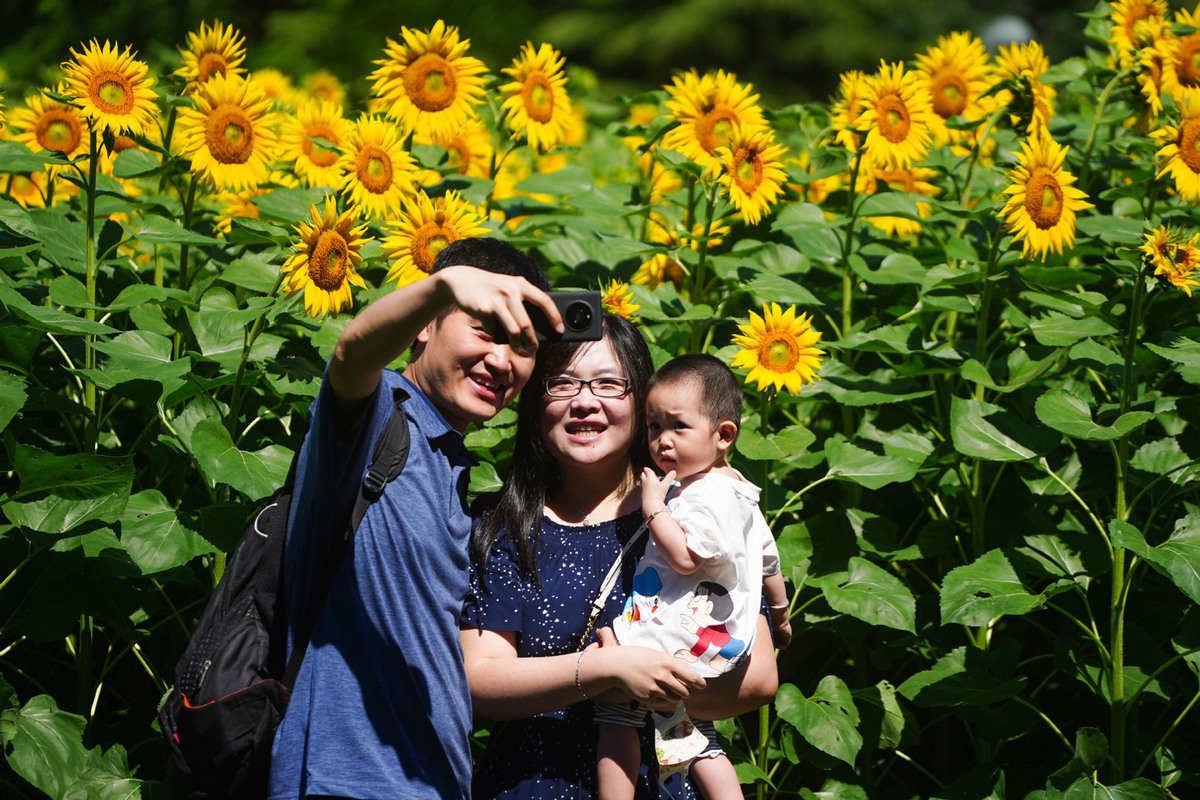Prevent big shifts in population, expert says

A family takes photos against a backdrop of blooming sunflowers at the Olympic Forest Park in Beijing, on July 4, 2021. [Photo/Xinhua]
As China's demographic development is at a key juncture, a political adviser has called for concerted efforts to build a family-friendly society, including influencing family and childbearing values among the younger generation.
Last year, the overall population on the Chinese mainland increased by just 480,000, down from 2.04 million in 2020 and the lowest in six decades, according to data from the National Bureau of Statistics.
He Dan, a member of the 13th National Committee of the Chinese People's Political Consultative Conference, said China's population has entered "the zero-growth range"-when the difference between births and deaths falls within 1 million, which "marks a major shift of the main contradiction facing China's population development".
"This means that China has completed the historic mission of curbing excessive population growth, and now it is confronted with the structural contradiction brought about by aging, low fertility and regional disparities in population development," she said during an exclusive interview ahead of this year's two sessions-the country's biggest annual political event.
He, who is also the director of the China Population and Development Research Center, said although the decline in newborns is a natural result of socioeconomic development, it is vital to take action to prevent dramatic population fluctuations and reduce its impact on economic growth.
A key move
China made a key move in this regard in May by allowing all couples to have three children-up from two-and rolling out a number of supportive policies to encourage births.
She said that when evaluating the impact of the policy adjustment, one should not only focus on the number of children born to each family, but also on efforts devoted to reduce the burden of childbearing, as well as raising and educating children, in addition to other measures aimed at helping families.
So far, she said local governments have responded "very actively".
"Most of them have revised their provincial population and family planning regulations, and have drawn up new regulations for extending maternity, paternity and parental leave," she said. "In addition, support for setting up the nursery service system has also been introduced in new regulations."
She noted that it will take some time to create a family-friendly environment throughout the whole of society.
"Rome was not built in a day. From the top-level design of the maternity security system to the implementation of specific policies and measures, there is still a lot of work to be done," she said.
She added that it will be a challenge to reshape the family and childbearing values of the young population-a topic that she plans to focus on in her proposal to this year's two sessions.
"The rise in the number of people remaining single is seen as a threat to a society that is aging and has fewer births," she said. "So we should start with influencing young people's attitudes toward marriage and childbearing."
Regarding concerns over gender discrimination at workplaces following the launch of extended paternity leave, she said that it is significant to keep gender equity promotion a high priority when devising supportive policies.
She suggested that China either strengthens its maternity insurance programs or sets up a new maternity security fund to cover as many female workers as possible.
Photos
Related Stories
Copyright © 2022 People's Daily Online. All Rights Reserved.










